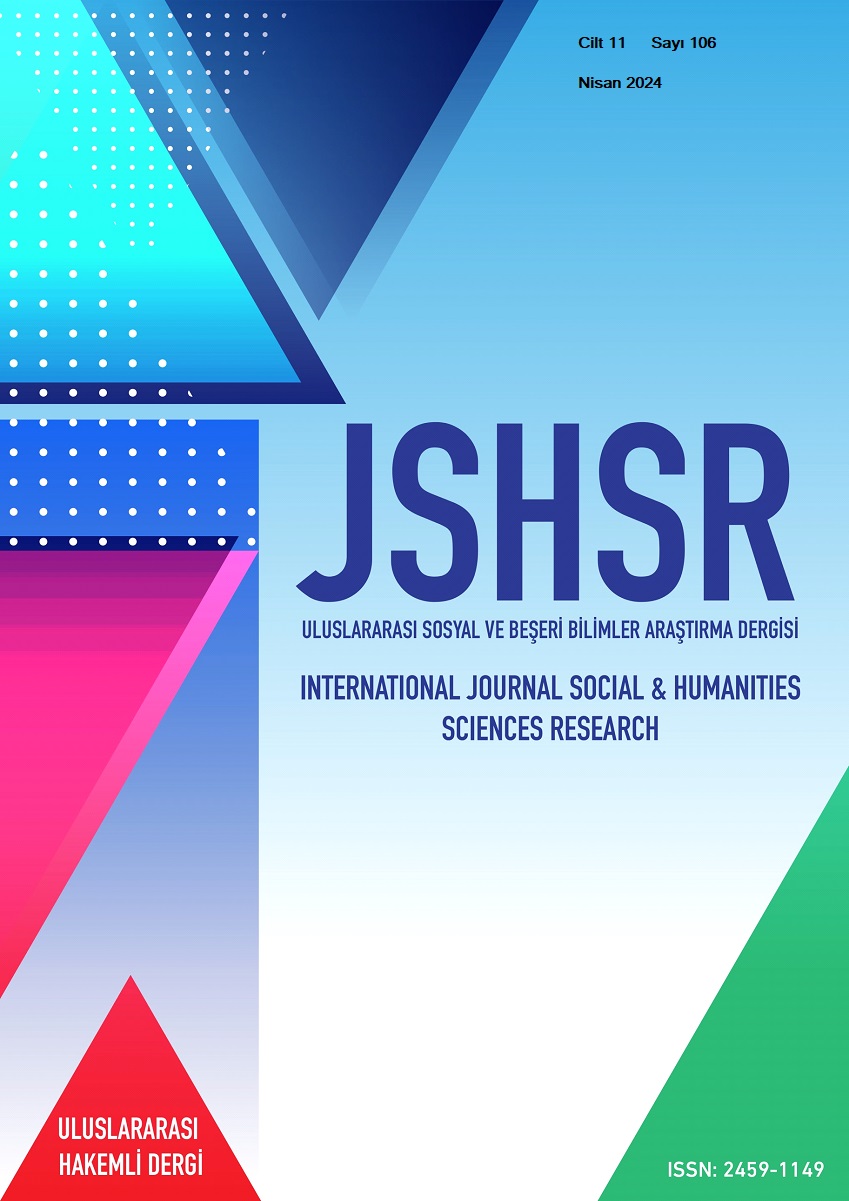Game-Based Learning and Preschool Educatios
DOI:
https://doi.org/10.5281/zenodo.11109503Keywords:
Preschool Education, Game, Game Based LearningAbstract
Play is one of the most important tools that express and direct the child's expectations, goals and wishes for the future. The behaviors and teaching achievements gained through play, especially in pre-school education, continue to be effective throughout life. Thanks to games, children can socialize, become aware of their talents, and reflect their inner leadership qualities. Through play, children acquire all the knowledge, skills and behaviors that they will need throughout their lives and that will contribute to their survival. In a child's life, play is like bread and water. The physical, spiritual, mental and psychological development of your child is directly related to the games he can play in time. Thanks to games, children gain problem-solving skills, the ability to communicate correctly, the ability to cooperate, dream and self-realize. In this study, preschool education, play-based learning, the effects of play-based learning in preschool on child development, its advantages, strategies and the duties of families were examined using the descriptive analysis method. Based on the findings, it was observed that thanks to a game-based curriculum in pre-school education, students' problem skills increased, they were more willing to work in collaboration, and they became aware of their abilities and formed a pattern of behavior in this way. It has been concluded that for the further development of all these features, the Ministry of National Education should update the current curriculum, simplify the curriculum, improve teacher training in this regard, allocate more time to family education and provide more financial means for school resources.
References
Aktan, Ş. & Önder, A. (2018).Okul Öncesi Dönemde Psikolojik Dayanıklılık. Eğitim Kuram ve Araştırma Dergisi, 4 (2), 20-30.
Beyazkürk, D., Anlıak, S., & Dinçer, Ç. (2007). Çocuklukta Akran İliskileri ve Arkadaslık. Eurasian Journal of Educational Research, 26, 13-26.
Bredekamp, S. (2015). Erken çocukluk Eğitiminde Etkili Uygulamalar (H. Zeynep İnan, T. İnan, Çev.). Nobel Akademik Yayıncılık.
Çakırer, B., H. (2017). Öğrenme Serüveninde Bilgiler Âlemine Oyun ile Seyahat: Oyun Temelli Eğitim Programları. Erken Çocukluk Eğitimi Mozaiği. (Edt: Ebru Aktan Acar) (387-401). Nobel Yayınevi.
Kaytez, N., Kaytez, N., & Durualp, E. (2014). Türkiye’de Okul Öncesinde Oyun İle İlgili Yapılan Lisansüstü Tezlerin İncelenmesi. Uluslararası Türk Eğitim Bilimleri Dergisi, 2014(2), 110-122.
Eratay, E. (2011). Okul Öncesi Çocuklarında Davranış Problemleri. Education Sciences, 6(3), 2347-2362.
MEB. (2016). TEOG istatistikleri yayımlandı. http://meb.gov.tr/teog-istatistikleri-yayimlandi/ haber/11409/tr
Nicolopoulou, A. (2004). Oyun, Bilişsel Gelişim ve Toplumsal Dünya: Piaget, Vygotsky ve Sonrası. Ankara Üniversitesi Eğitim Bilimleri Fakültesi Dergisi, 37(2),137-169.
Oktay, A. (2013). Oyuna Kuramsal Yaklaşım, Çocukta Oyun Gelişimi, Anadolu Üniversitesi Yayınları, (2. b.) (s. 37-54).
Vygotsky, L. S. (2004). Imagination and creativity in childhood. Journal of Russian & East European Psychology, 42(1), 7-97.
Yavuzer, H. (2012). Çocuk Psikolojisi. Remzi Kitapevi.
Zembat, R. (1992) Okul Öncesi Eğitim Kurumlarında Yönetim Ve Yönetici Özellikleri (Yayınlanmamış doktora tezi). Marmara Üniversitesi.
Wood, J. J., Cowan, P. D., & Baker, B. L., 2002, Behavior Problems And Peer Rejection İn Preschool Boys and Girls. The Journal of Genetic Psychology, 163(1), 72-88.
Downloads
Published
How to Cite
Issue
Section
License
Copyright (c) 2024 INTERNATIONAL JOURNAL OF SOCIAL HUMANITIES SCIENCES RESEARCH

This work is licensed under a Creative Commons Attribution 4.0 International License.


